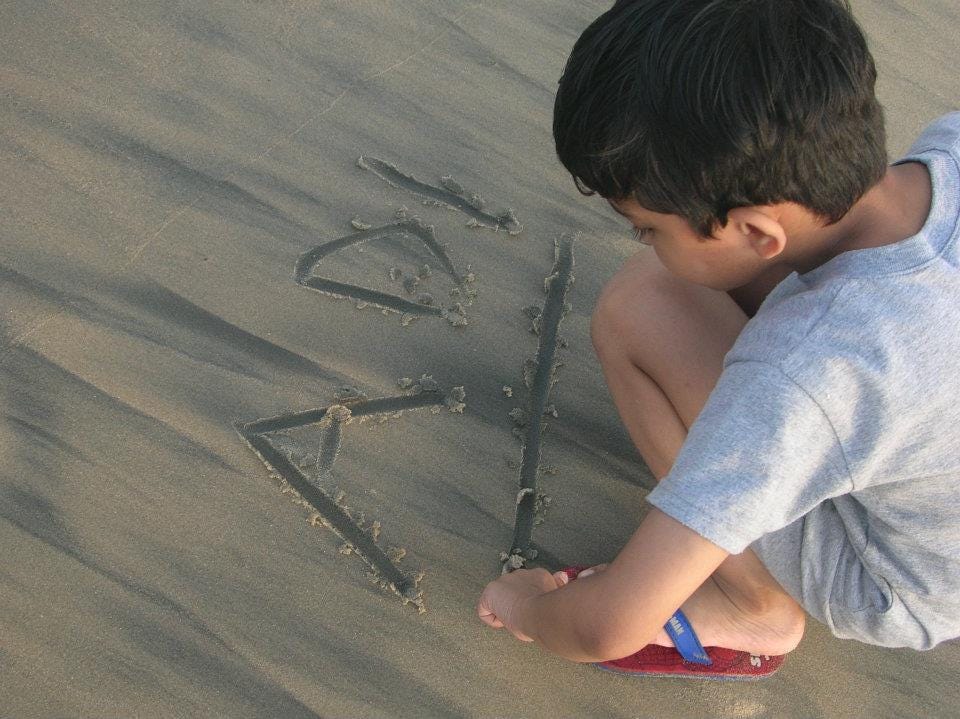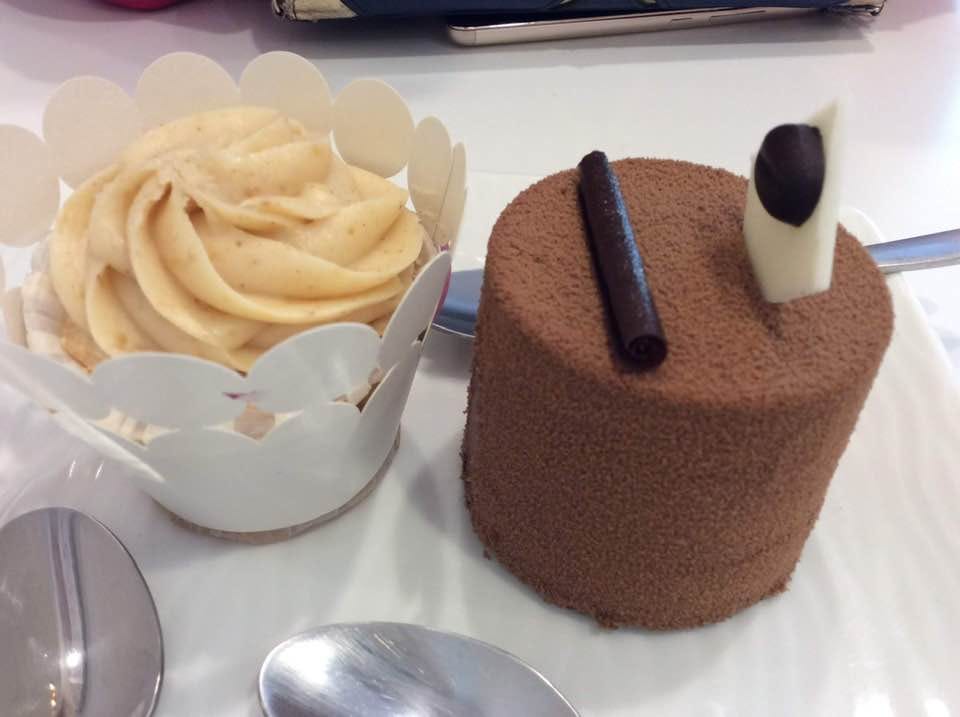‘Lessons in Chemistry’ has been a joy to read!
Courage is the root of change — change is what we are chemically designed to do.
Dear Reader,
India’s festive season has just begun. Colourful Krishna Janmashtami festivities are over, so is the splendour of the much awaited festival, yes - the Ganesh Chaturthi festival. If you have ever been to Maharashtra while the festival is celebrated in the grandest way, you would know what an amazing cultural experience it is.
While Indian households gear up to celebrate their favourite festivals, I am curling up with a new stack of books including ‘The Reluctant Family Man: Shiva in Every Day Life’.
Let me confess that bestsellers aren’t my cup of tea. I’d rather read books by debut authors who aren’t easily discovered or reviewed or raved about. If I have to choose between a book written by a debut author and one that is written by an iconic author, I would definiely opt for the former by default.
But here’s the thing.
An interesting observation by Julianne Schultz in the ‘Griffith Review’ is apt to consider:
Reading, like writing, is a solitary activity. One you just have to get on and do by yourself. It can be shared, but only after the hard work of finding the time to sit down and focus on the words in front of you and actually enter the world the author has created. The written word has never been more important, but we seem to be losing the art of reading, to access the deeper layers of meaning.
Reading ‘Lessons in Chemistry’ has been a real pleasure. I found it funny, thought-provoking and tragic at the same time. It pulled me in right from the first chapter. The story is not confined to the key plot, which revolves around Elizabeth Zott, a female chemist in the 1950s who falls in love with a famous, renowned chemist.
A close look at the struggles of a woman who chooses an unconventional career path, as that of a scientist, is closely probed and examined in this book. While I have read many novels, this is probably the first time I’ve read a story on the struggles of a woman who chooses to be a scientist!
The struggles of Elizabeth Zott, who believes in the power of Chemistry, offers a quirky, compelling read. Her disdain for religion and for men who treat women scientists as object or as visual candy is clear in the way she deals with the male gaze.
When Elizabeth falls in love with Calvin, a renowned scientist, who takes her intelligence seriously and promotes her with pride and a sense of fairness, it is misinterpreted as a case of undue influence and she becomes a hot topic of toxic gossip at the workplace. Her relationship is reduced to the status of a ‘fling’ that ends in heartbreak when a tragedy befalls the couple, and she finds herself pregnant and jobless.
Her struggles begin when her daughter is born and she understands the grim reality of not having money to cover basic expenses in a world where women scientists and chemists are treated with disdain or disbelief. An opportunity presents itself and she reinvents herself as one of the most popular TV chefs, who inspire women from all spheres of life.
I love how Zott is an amazing mother to her daughter. A touching scene between mom and daughter tugged at my heart, literally, where Madeline asks Elizabeth, “Are we poor?” and her mother asks, “What makes you say that?” Her daughter says that a boy in her class said so. When her mother still makes no reply, Madeline asks, “Was Dad poor?” and then Elizabeth flinches. She makes no reply.
Zott’s little lunchbox notes to her daughter are deeply heartwarming as it is written with scribblings such as ‘Most people are awful’ and ‘Play sports a recess but do not automatically let the boys win’.
Kids pick up their parents’ insecurities pretty early.
I remember when my son was in class 2 and his schoolbus was considerably late. He asked me a question that still tugs my heart, “Amma, will you be shouted at for going to office so late? I can stay and wait here alone, you should go to office on time. But I feel so angry with my school right now for making you late!”
When I heard this, my heart just flipped as I understood that he was tuned into my anxiety about being late to reach my workplace. The worry in his eyes just broke my heart! I assured him not to worry about it and insisted we would wait together for his school bus. So, yes, what I mean to say is that kids pick up our anxieties easily.
Now, yes, I am coming back to the book again! When I am talking to you, dear Reader, I share a bit about my life with you and that’s why this newsletter is special to me.
Insightful conversations with her daughter’s highly disapproving teachers reminded me of similar experiences I’ve had when I was in school. Most teachers I had to deal with took questions as a personal insult in class and you were just not allowed to ask questions. If you did, they always found a way to retaliate and it didn’t end up well for the student or the parent.
“Madeline asks inappropriate questions?”, Elizabet said, alarmed.
“Yes she doe,” Mrs. Mudford said sharply, “For instance,yesterday we were discussing Ralph’s pet turtle, and Madeline interrupted to ask how she might become a freedom fighter in Nashville.”
Elizabeth says, “She shouldn’t have interrupted. I’ll speak to her.”
Mrs. Mudford clicked her teeth, “You misunderstand me. Children interrupt; that I can deal with. What I can’t deal with is a child who wants to change the discussion to civil rights. This is kindergarten.”
Humour is a continuous thread throughout the story arc even as darker facets are woven into the story.
The grim reality of paedophilia in orphanages, the shadows of domestic violence, toxic masculinity and patriarchal double standards in the academic landscape, are vignettes into the social narrative that charactersises the American sociey back in the 1950s.
Women are at the receiving end of the web of systemic faultlines and failures, hesitant to ask questions or push through with their rights as individuals. Male bosses treat them with disdain and often with a obsecene lens that is apparent. The truth is put forth pretty bluntly - Women are not respected at places of work as their male counterparts are. They are not taken as seriously. They are viewed as objects of pleasure.
Through Elizabeth Zott’s perspectives, we see how gender inequality played out during the 1950s in the US. The sad reality is that we still live with these scenarios in the Indian context and little has changed when it comes to breaking the glass ceiling.
Throughout the book, several scenes seem slightly exaggerated and theatrical including the continuous emphasis on her daughter, Madeline’s extraordinary intelligence. However, it is these elements that showcase the unusual nature of the TV cooking show, where Zott uses chemical names for ingredients and the method of cooking that wins hearts. There’s a nice episode where she decides to cook something and then tosses the idea aside as she decides she wants to make something chocolatey!
Yes, there were certain places where it felt as though the reader was being rushed through and it didn’t feel right, especially towards the end.
Circling back to Julianne Schultz’s observations in the ‘Griffith Review’:
Reading requires the reader to slow down, take a leap into another world, adopt another perspective, turn words into images, quotes into conversation, exchanges into relationships in which power is unequally distributed. At best it can provide an opportunity to step aside and suspend reality – and then to bring an enriched understanding to making sense of the real world.
While reading ‘Lessons in Chemistry’, I felt transported into a world where reality felt somewhat suspended for a short duration. It gave me an opportunity to escape into the nuances of an unreal TV cookery show that inspired women sitting at home to pull off impossible feats. Cooking shows rarely accomplish such outcomes, if you know what I mean. So, yes, escapism is what it felt like, in a feel-good, heartwarming way.
A quirkly, fast-paced and delightful book to read, ‘Lessons in Chemistry’ follows a predictable ending. The story has a heartwarming constellation of supporting characters.
I absolutely loved the parting speech, where Zott tells her audience, “CHEMISTRY IS CHANGE. Whenever you start doubting yourself, whenever you feel afraid, remember: Courage is the root of change — change is what we are chemically designed to do. So, when you wake up tomorrow, make this pledge. No more holding yourself back. No more subscribing to others’ opinions of what you can and cannot achieve. And no more allowing anyone to pigeonhole you into useless categories of sex, race, economic status and religion. Design your own future.”
But my favourite character in the book is Six-Thirty, yes - the brilliant, loving and forever-to-love dog!
A Personal Milestone in September 2023
With the blessings and guidance of my Guru, I received a blessing to edit an English book on Sri Narayana Guru, that was translated from its original book in Malayalam. The book offers rare glimpses of the life and teachings of Sri Narayana Guru, with a socio-historical lens and an emphasis on how it brought forth a social renaissance in Malabar.
The story of the social renaissance that Sri Narayana Guru ushered into the minds of people remains an understated yet essential facet of Kerala’s emergence as a society that is rooted in equality, fraternity, and a deep sense of humanity.
While many activisits and caste-centric champions would like to portray his fight against casteism as his personal fight against temple worship, I would strongly argue against it. I am determined to study more about his spiritual legacy to be able to put forth a stronger argument, backed by evidence from his life’s spiritual milestones that are closely linked to the establishment of temples as places of worship and the Vedic prayers that he simplified so that an ordinary man can understand and reflect on it.
The life, history and teachings of Sri Narayana Guru reveal that he undertook intense tapas and sadhana to attain self-realisation. This further propelled him to undertake the herculean task of transforming the society’s biases. In this context, I’d like to add that Sanathana Dharma, despite the continuing malignant attacks on it, continues because of great Rishis, yogis and saints such as Sri Adi Shankara Bhagawadpada and Sri Narayana Guru. They are not myths as others would like us to believe; they are the real change makers and whether we accept it or not, they are closely tied to their religions even as they strive to transcend it.
Be thoughtful and good to Senior Citizens
A little kindness has never hurt anybody. In fact, it makes the world a happier place.
My Guru taught us to respect parents and elders. And I believe that it matters in today’s world.
The International Day of Older People is observed on October 1st. Many Indian households continue to embrace the joint family system, where grandparents remained an integral part of our life’s journey. However, many changes have taken place in Indian society and increasingly, there is an indifference that has begun to make itself felt towards senior citizens.
We have neither the time nor the commitment to sit down and have a conversation with them or to take some time to understand their feelings and aspirations.
In public spaces, I see senior citizens struggle with little things when they are travelling by train or in a flight. Sadly, most young people and middle-aged people pay them no attention at all as though they are invisible.
The cruelty we are capable of —-it is shocking.
If you spot such situations, please do take out a moment to help the elderly. It may be a small thing to do but it’s a big thing for making their life easier.
Indian culture, through its classics in the form of Puranas, Panchatantras and Jataka Takes, have taught us to help and serve elders to enable a sense of humanity and self-transformation. At a time when human values are rarely practised and human rights activists have more agency mostly due to vested political interests, it is time for us to show humanity towards one another.
Teach kids to be well-behaved and thoughtful
This may sound preachy but I need to say this. As a parent, I feel very strongly about badly behaved children and their sense of ‘entitlement’.
Today, kids expect to be served and show little respect or manners when it comes to respecting their elders. They swear, they talk like adults and they believe they know it all. I am fine with most things because I realise that they learn from their parents and in a way, they cannot be faulted for their misconduct.
However, showing disrepect to elderly persons is not acceptable.
Through the timeless epics of Ramayana and Mahabharat and the many Puranas, Indian culture has taught us the importance of humility and simplicity as essential on the path of self-transformation and growth.
Whenever I engage in talks with friends and colleagues, they share experiences of how they have had encountered unacceptable behaviour from children who speak rudely, show no respect and have no fear of the consequences of their actions. Most importantly, their parents do not correct their misconduct.
In several conversations I’ve had with teachers across different schools in Delhi-NCR, they often tell me that students from privileged backgrounds are the worst behaved in class. They cannot be scolded or punished due to their ‘privileged’ status.
Dear reader, if you are a parent or planning to be one, please consider this as a non-negotiable metric: It is essential for “educated” parents to teach their children how to behave respectfully, particularly to elders.
A little patience, a little understanding and a little thoughtfulness goes a long way in supporting the silver members of our society.
You lose nothing by doing so but you gain a lot more compassion, empathy and perspective that makes you richer in your life’s experience and boosts your self-growth.
Do it for yourself - because one day, you will want to be in good company too and you know the universal secret, “The good that you do will ultimately protect you.”
Few little acts of thoughtfulness we can do to make life easier for senior citizens:
If you see a senior citizen struggling with some task, walk up to them and try to help and serve them. It could be something as simple as crossing the road or lifting a heavy suitcase. Teach this to others in your family as well.
Show that you care. Wish them on their important milestones, check how they are doing and if they need any support.
Regular visits should be a priority as there is no greater joy for them than sharing their feelings or their thoughts with someone who cares about them.
If you have aging uncles or aunts or elders in your neighbourhood, take out some time at least once a week.
Have regular conversations with them. Sometimes all they need is someone to talk to. Surely, you can spare five to ten minutes of your time once a week to do a good deed, right?
Love and deeply treasure whatever you choose to do! If you don’t truly believe in the goodness of what you have set to do, it becomes pointless.
Help Ever, Hurt Never!








